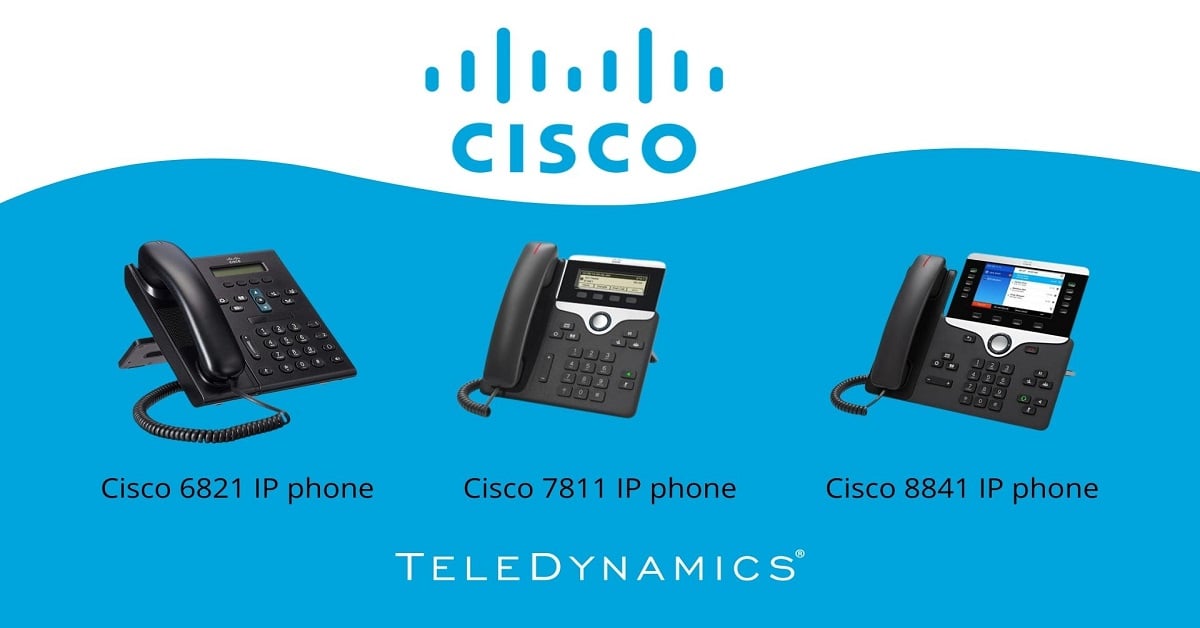Product Review
Cisco is a household name when it comes to networking, the internet, and telecommunications in general. With its legendary reliability and virtual ubiquity in the market, the company has consistently delivered equipment and services of the highest quality around the world.
This reputation has followed the company into the voice equipment market, as well. In this article, we’ll take a look at Cisco’s multi-platform IP telephone offerings and examine their benefits for your business.
Read More
Topics:
SIP Phones,
Business Telephone System,
Conferencing,
Product Review,
Bluetooth,
Wi-Fi,
Cisco
AI-enabled VoIP assistants, also referred to as virtual assistants, are becoming more and more commonplace in telephony systems and contact centers. In this article, we examine the current trends and possibilities, as well as what can be expected in the very near future.
Read More
Topics:
Business Telephone System,
VoIP,
Software Integration,
Trends,
Productivity,
Cloud,
Unified Communications
Product Review
Yealink continues its excellence as a provider of high-quality and exceptionally relevant products that respond to today’s challenging business communications needs. Among its offerings is Yealink’s line of Zoom Rooms videoconferencing kits that turn any sized room into a Zoom Room.
Read More
Topics:
Yealink,
Videoconferencing,
Conferencing,
Productivity,
Product Review,
Cloud,
Collaboration,
Zoom
TeleDynamics is proud to distribute Snom products in the United States. Headquartered in Berlin, Germany, it has subsidiaries in the U.S. and other countries and serves customers worldwide. In this article, we highlight the innovation and inventiveness that are instilled within Snom’s products and services today.
Read More
Topics:
SIP Phones,
Business Telephone System,
VoIP,
SIP,
DECT,
Wi-Fi,
Snom
By Brian Van Meter, marketing manager at Grandstream
Grandstream’s IP phones are used around the world by businesses, schools, hotels, and ITSPs. They provide a desktop device that is feature-loaded, intuitive to use, and productivity-focused. The GRP2600 Series of Carrier-Grade IP Phones is the newest line of desktop IP phones and offers both essential and professional-level devices for a variety of deployment scenarios. As the newest series, our GRP IP phones have advanced capabilities that the GXP series of IP phones lacks, and it is important to understand the difference between the two lines when making a purchasing decision. Within this blog post, we’ll be comparing the GXP and GRP series, and explaining where our newest generation of IP phones offer notable improvements.
Read More
Topics:
SIP Phones,
SIP,
Grandstream
Product Review
In this article we review Konftel's C20800 Hybrid video collaboration kit, which is comprised of various components in an easy-to-use, simple-to-set-up room videoconference system.
Read More
Topics:
SIP,
Conferencing,
Productivity,
Product Review,
Unified Communications,
Konftel
TeleDynamics is now a stocking distributor of Boom Collaboration’s line of collaboration devices. In this article, we showcase the company’s profile, as well as review some of the most innovative products they carry, so that you can become more familiar with what they have to offer and how they can benefit your business.
Read More
Topics:
Videoconferencing,
Conferencing,
Productivity,
Collaboration,
Boom Collaboration
Product Review
Yeastar’s P-Series PBX System is an innovative and powerful series of VoIP servers that are purpose-built for small to medium-sized businesses. So far, the series has been available as an appliance; that is, a device that gets installed at the physical location of your business. Recently, however, Yeastar has introduced the software edition to the P-Series PBXs, delivering even more versatility and installation options.
We’re excited about this new development, and in this article we showcase the advantages of Yeastar’s P-Series as a whole while also focusing a little more on the advantages of the software edition.
Read More
Topics:
IP PBX,
VoIP,
Software Integration,
Productivity,
Product Review,
Cloud,
Yeastar
Product Review
Some of the most important roles within a company require employees to spend a lot of time communicating via telephone. Clear and comfortable communication is vital, and this can only be achieved with the right set of tools, equipment, and services.
Grandstream’s GRP series of carrier-grade IP phones are ideal for employees with high call-volume roles. In this article, we review the two newest additions to the series.
Read More
Topics:
SIP Phones,
Business Telephone System,
Grandstream,
Productivity,
Product Review
5G has been a hot topic in the telecommunications industry over the past few years. Since early 2020, we’ve been hearing more and more about 5G services being rolled out. Every day, a greater number of telcos around the world are marketing and deploying them.
This, then, begs the question: what is the real status of 5G deployment today? Can I truly enjoy all that 5G promises simply because I have a 5G icon in the status bar of my smartphone? We examine these questions and more in this article to get a feel for what’s available now and what you can expect in the future.
Read More
Topics:
VoIP,
Trends,
Productivity,
Mobile,
Cloud,
Wi-Fi,
IoT,
Unified Communications

















